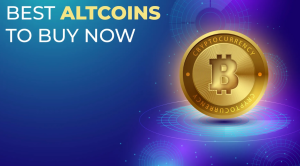Image Source: iStock
The fourth industrial revolution (4IR) has introduced a new technological era; the digital age. In this new world, internet users can live in virtual ecosystems, prominently known as the metaverse. Powered by blockchain technology and VR, the metaverse has grown into a $38 billion dollar industry, with projections from Statista showing it will likely hit $678 billion by the end of 2030.
What is so fascinating about the metaverse? Well, there are a couple factors that are making this new concept a major trend within and outside the crypto community. Besides the aesthetics of existing in a digital world, the metaverse is a futuristic innovation that will not only enable digital interactions but open up more opportunities for global collaboration. A value proposition that seems to resonate with big tech, including Facebook and Microsoft.
The Growing Interest in Virtual Worlds
Before diving into the current developments, it is worth noting that the metaverse is partly a byproduct of Non-fungible token (NFT) innovations. This fast-rising crypto niche took the centre stage in 2021 following the sale of prominent NFT collections such as BAYC and CryptoPunks. It has since evolved to feature on-chain avatars and other digital assets (land parcels, in-game items and rare collections) that are fundamental in the metaverse.
While a significant percentage of the early metaverse adopters are crypto natives, there is also a growing interest from large corporations in the tech industry. Most notably, Facebook recently rebranded its outfit to Meta in a bid to explore the underlying potential in virtual worlds. The company has pioneered a digital world dubbed Horizon, which currently allows users from the U.S and Canada to participate in its animated world through a legless avatar.
Mark Zuckerberg’s Founder’s letter in October 2021 also reiterated the prospects of a people living in a virtual world,
“Our hope is that within the next decade, the metaverse will reach a billion people, host hundreds of billions of dollars of digital commerce, and support jobs for millions of creators and developers,”
Notably, Facebook is not the only company racing to build its own metaverse or affiliated products. They are competing against the likes of Microsoft which has tabled a $68.7 billion offer to acquire Activision Blizzard, one of the leading American video game companies. According to Microsoft’s CEO Satya Nadella, the bid is a strategic move to advance the nature of the gaming space,
“Metaverse is essentially about creating games. It is about being able to put people, places, things [in] a physics engine and then having all the people, places, things in the physics engine relate to each other.”
What Does the Future of the Metaverse Hold?
As it stands, most of the innovation on the metaverse is in the experimental or beta stages. However, there are some notable developments especially in the decentralized metaverse economy. Unlike Facebook’s Horizon World, decentralized metaverse platforms are governed by the community which means that stakeholders have a greater say compared to the digital worlds that are being launched by centralized players.
One of the emerging platforms in this niche is Bullieverse, an open Web 3.0 ecosystem designed for future citizens of the decentralized internet. This particular metaverse features a DApp building environment where innovators can create personalized worlds and play-to-earn games. Contrary to The Sandbox approach where users are limited to virtual land parcels, Bullieverse has introduced separate game portals that exclusively support p2e infrastructures.
According to Bullieverse’s Chief Growth Officer Arunkumar Krishnakumar, focusing on the p2e ecosystem will be a significant game-changer in attracting more participants into the metaverse,
This decentralized metaverse and p2e gaming ecosystem is powered by two native tokens; Bull and Shell. The former acts as the governance token while the latter will enable in-game utility by enabling transactions and on-chain interactions. A model that Bullieverse’s Co-Founder Murali Reddy believes will be integral in setting the stage for living and gaming on the metaverse,
Conclusion
As mentioned in the introduction, the metaverse is a billion dollar economy that has a significant upside potential. No wonder big tech such as Facebook and Microsoft are jumping into the trend. The big question remains whether the masses will adopt centralized or decentralized virtual worlds. While it may be premature to predict the winner, one thing is close to certain; different metaverse platforms will be interoperable in the future.
“The metaverse will not be created by one company. It will be built by creators and developers making new experiences and digital items that are interoperable and unlock a massively larger creative economy than the one constrained by today’s platforms and their policies.” noted Zuckerberg in last year’s Founder’s letter.




















